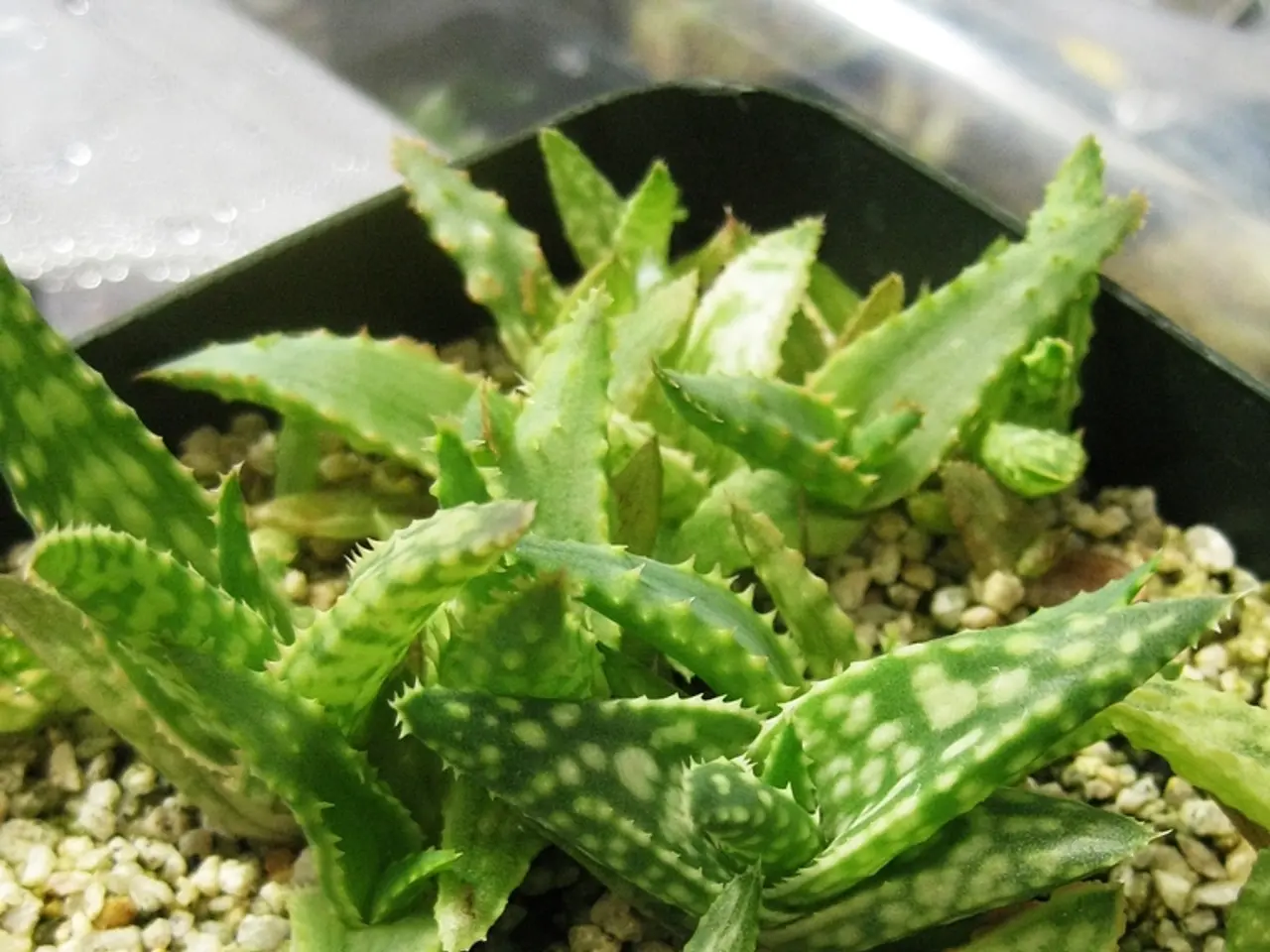Aloe Vera for Skin Care: Applications and Advantages
Aloe vera, a common household plant known for its skin-healing properties, is a versatile solution for various skin conditions such as acne, eczema, and sunburn. Its cooling effect on rashes or sunburns, combined with its anti-inflammatory and moisturizing qualities, makes it an ideal choice for soothing irritated skin.
For acne-prone skin, aloe vera gel can be applied topically due to its antibacterial and anti-inflammatory properties. A thin layer of pure aloe vera gel, applied once or twice daily on clean skin, can help reduce breakouts and soothe irritated skin. Aloe vera may also aid in preventing future breakouts by enhancing the skin’s natural barrier and healing blemishes.
For individuals with eczema and sensitive skin, aloe vera gel offers moisturizing and soothing benefits, helping to calm redness, irritation, and scaling associated with the condition. Application can be done once or twice daily as needed to relieve dryness and itchiness. It is crucial to perform a patch test before applying extensively, especially for eczema, to check for sensitivity or allergic reactions.
Sunburn victims can find relief in aloe vera's anti-inflammatory and moisturizing effects. Applying a generous amount of aloe vera gel directly to the affected area immediately after sun exposure and reapplying a couple of times per day can help accelerate healing and reduce discomfort. For additional relief and skin repair, combining aloe vera with other natural ingredients like St. John’s Wort and Tamanu Oil (as found in some after-sun creams) can be beneficial.
However, it's essential to consider potential risks and precautions when using aloe vera. Some individuals may be sensitive or allergic to aloe vera, so it's important to perform a patch test on a small skin area before widespread use to avoid allergic reactions. Aloe vera gel should not be applied on open scrapes or cuts as it may cause irritation or infection if the product is not sterile or pure.
To ensure safety and effectiveness, use pure or high-quality aloe vera gel products without added irritants or harsh chemicals. For chronic or severe skin conditions, consult a doctor before starting aloe vera treatment, especially when using it alongside prescribed medications or treatments.
In conclusion, aloe vera is an effective, natural remedy for acne, eczema, and sunburn when used appropriately and with attention to potential allergies and the condition of the skin before application. Consult a healthcare provider for further guidance on using aloe vera as a complementary treatment for skin conditions.
- Diabetes patients might want to monitor their blood sugar levels when using aloe vera due to its potential interactions with blood-sugar-lowering medications.
- In the realm of health-and-wellness, aq (Aquaphor) can be used for skincare, offering relief for dry skin and preventing moisture loss.
- Skincare routines encompassing healthy-diets rich in essential nutrients can contribute to a clearer, more youthful-looking complexion, reducing the degeneration caused by environmental factors.
- For individuals suffering from bipolar disorder, depression, or HIV, ensuring mental health through regular counseling and support groups is crucial in maintaining overall health-and-wellness.
- Macular degeneration, an age-related eye condition, can be managed through a healthy diet, nutritional supplements, and follow-ups with an eye care specialist.
- An obese person must be aware of the increased risk for various health complications such as diabetes, heart disease, and certain types of cancer (Type 2 Diabetes, for example).
- Predictive models developed by science can help identify individuals at high risk for diseases like obesity, diabetes, and macular degeneration, allowing for early interventions and preventative measures.
- Spondylitis, an inflammatory form of arthritis affecting the spine, can cause pain, stiffness, and restricted mobility; proper nutrition, exercise, and, if necessary, medication management are essential for dealing with the condition.
- Psoriasis patients can benefit from a comprehensive treatment plan including topical creams (such as aloe vera), light therapy, and, if severe, systemic medications prescribed by a dermatologist to manage symptoms.
- Asthma sufferers should avoid triggers like dust, mold, and smoke, exercise regularly, and follow a prescribed medication regimen to control the condition and prevent flare-ups.
- Beauty and self-care should extend beyond skincare to include mental health, promoting a holistic approach to health-and-wellness.
- When it comes to skincare and beauty products, it is essential to read labels and choose products free from harmful chemicals, promoting overall skin health and reduction of risks for future complications (such as hepatitis from contaminated or improperly prepared skincare products).




